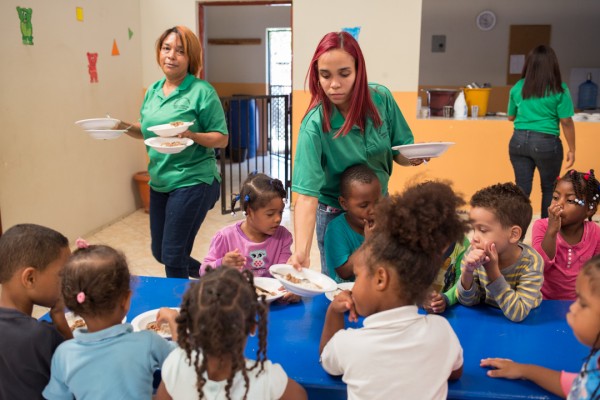
This month—on the 19th—we celebrated the Feast of Corpus Christi, the Body and Blood of Jesus Christ, and to illustrate the solemnity at Mass we read Luke’s account of the multiplication of the loaves and fishes (Lk 9:11-17). In this passage, two different ways of dealing with life’s challenges are immediately discernible.
On the one hand, faced with the pressing problem of the lack of food for the crowd that stands in front of them, there is the «solution» (let’s call it that) proposed by the disciples: that each one may look for what he needs. «Dismiss the crowd so that they can go into the villages and farms and find themselves bread». It is the law of the jungle: every man for himself.
And, on the other hand, there is the option that Jesus proposes: let us all stay here, together, and, united, let’s see what we can do about the problem we face. This, one could say, is the Eucharistic (that is, communitarian) way of life.
In the way of dealing with things of the disciples, no one takes responsibility for the well-being of the brother. Jesus, on the other hand, synthesizes his proposal precisely with the invitation (or mandate), that the disciples be the ones who start working to solve the needs of the crowd: «Give them something to eat yourselves» (Lk 9:13). And this becomes, then, the key phrase of the story. «Give them something to eat yourselves» is an order from Jesus that resounds throughout History, as an inescapable call to the ears and conscience of all those who, at times, would like to inhibit ourselves, shrug our shoulders, say that the needs of others are not our problem and to opt, with the disciples, for the law of the jungle, every man for himself.
In each celebration of the Eucharist we remember and emphasize that we come to receive communion as members of a community. In other words, we partake of the body of Christ (present in the consecrated host) in order to continue being the body of Christ (as Church, people, family), as Saint Paul said: «You are the body of Christ» (1 Cor. 12:27).
In this sense, it is obvious that there would be no greater contradiction than an intimate, privatized and individualistic experience of the Eucharist. It is beautiful that we experience the reception of the consecrated form as a moment of deep closeness with Jesus: but this should never become an excuse to then distance ourselves from others, under the pretext that «I am at peace with the Lord. Thus, I do not need anyone else». We receive communion, and in the act of receiving communion we feel the closeness of the Lord, yes: but the logical fruit of this closeness with the one who said «Give them something to eat yourselves» should be, time and time again, that then those of us who have received communion want to get closer and commit ourselves more with each other, and especially with those who are hungry. Because (we insist) we receive the body of Christ as members of the Body of Christ.
And what makes us be the Body of Christ, or the Church, or a people or a family? A baptism certificate? A passport, a flag? A surname, some genes? No, but rather what Luke’s text reveals: the ability to assume responsibility for one another.
A group of people where some take responsibility for the welfare of others is a community. On the contrary, one in which everyone goes their own way (regardless of whether they share nationality, or last name, or affiliation to the same church) will never be a true community.
Let us listen, with renewed ears, to the explicit words of Jesus: «Give them something to eat yourselves». In the capacity that we demonstrate to respond to this invitation hangs our very identity as members of the Church, as brothers and sisters, one with the other, forming the body of Christ.









